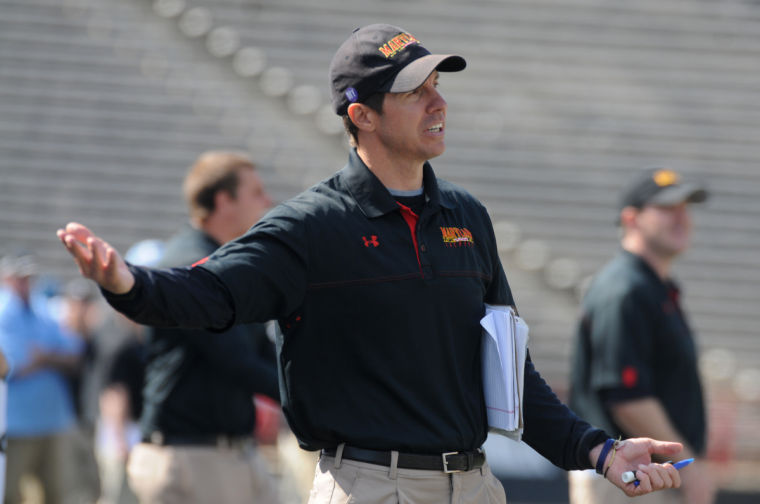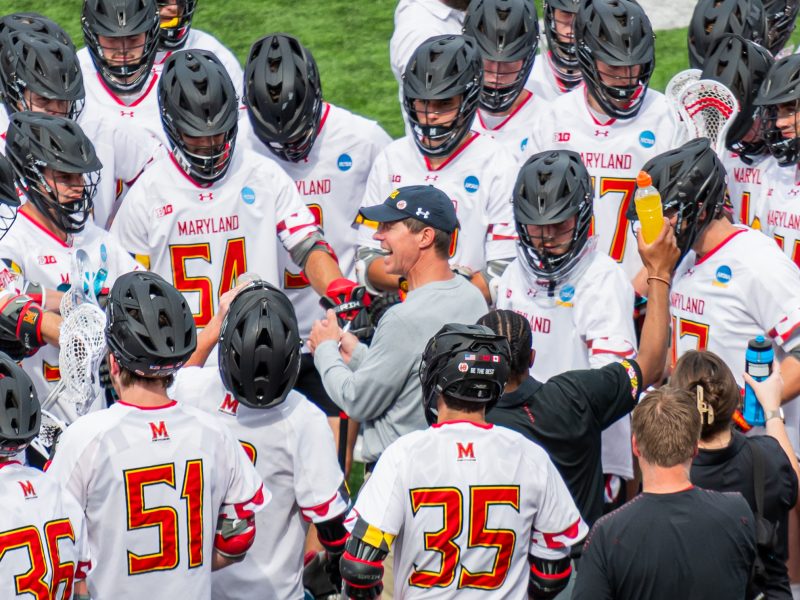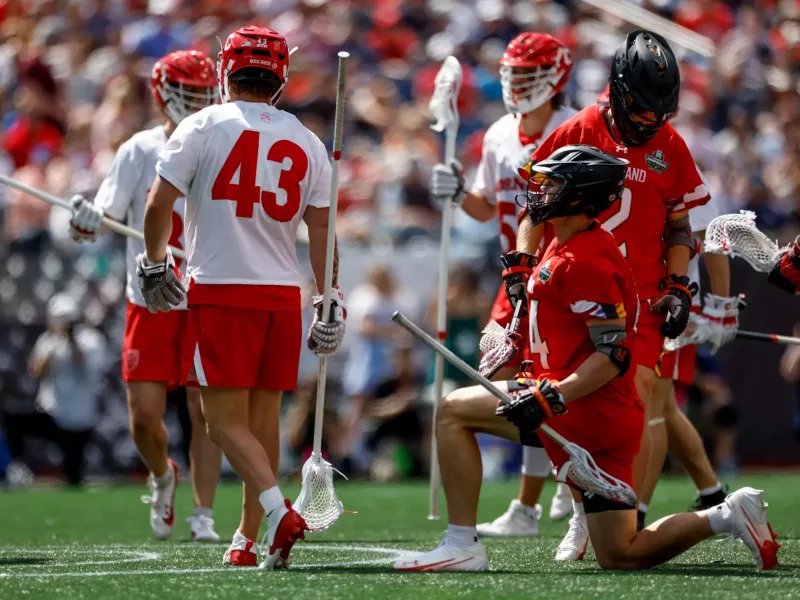With just over one minute left in regulation of an eventual 13-12 overtime victory against Maryland men’s lacrosse, Virginia attackman Michael Kraus’ shot ricocheted off the crossbar and skipped all the way to midfield.
But as the ball was heading out of play, Cavaliers players noticed that an official had awarded their team a goal on the shot. They began to celebrate, having overcome a five-goal deficit.
And as the scoreboard changed to reflect the 12-12 tie, the Terps were left to seek an explanation from the referees.
“I did ask them. I go, ‘Listen, we’re 100 percent sure [that’s] in?’” coach John Tillman said. “And they were like, ‘Listen, if we weren’t convinced, we wouldn’t make that call.’”
Though replays on the TV broadcast showed the ball deflected off the pipe, Tillman didn’t deflect any blame toward the officials for making a call that sent the game into overtime. He did, however, advocate for adding instant replay to the college game when asked during his postgame press conference, hoping to prevent a similar scenario in the future.
“It’s about getting it right,” Tillman said. “And if we can do that — certainly a stage this big, if you’re going to have TV anyway and you’re going to have the ability to do that — why not?”
[Read more: Maryland men’s lacrosse falls in OT to Virginia, 13-12, after blowing five-goal lead]
The NCAA lacrosse rulebook makes no mention of instant replay, sparking debate as the sport grows and attracts more TV coverage.
Saturday’s game was broadcasted on ESPNU, providing ample camera angles to review the late call that extended the game into overtime, where Virginia found the game-winning goal.
Maryland players tried not to let the call waver their confidence, instead pressing to find a game-sealing score of their own to advance to Philadelphia for the NCAA tournament semifinals. The tally never came, though, and the Cavaliers found the winner less than a minute into added time.
“It’s kind of out of our control. You can only control the controllables,” midfielder Bubba Fairman said. “At the end of the day, the refs are out there for a reason: they’re good at their jobs.”
Of the available players at Virginia’s news conference, the three who were on the attacking side of the field for that play claimed they didn’t see whether the ball went in or not. Coach Lars Tiffany, who was much further away on the sideline, also said he didn’t have a good angle to decipher whether the shot crossed the line.
Tiffany, though, does not share the same opinion as Tillman when it comes to instant replay in the sport.
[Read more: Maryland men’s lacrosse isn’t shying away from its underdog role in the NCAA tournament]
“I do not enjoy instant replay, and anybody who knows me has heard me say that for a couple years,” Tiffany said. “I’m not looking for perfection when I’m watching sports. Now, certainly as a coach, I could see you want to get it right and get the call right. But, I don’t know, I’m just not a proponent — and never have been — of instant replay.”
While the crossbar deflection went Virginia’s way, there was also a missed call that went in Maryland’s favor earlier in the game.
On the Terps’ fourth goal, attackman Jared Bernhardt drove toward the crease and dove out for the score. The dive was legal — Bernhardt didn’t dive toward the goalmouth — but his foot landed on the crease line before his extension, which is a violation that would have negated the score.
Whether those two calls in the quarterfinal prompt increased discussions toward ushering in instant replay to the college game remains to be seen. There are coaches, such as Tiffany, who believe it would hurt the flow of the game. And then there are those like Tillman, who are willing to sacrifice non-stop action for the sake of accuracy.
“Whether it hurts you or helps you,” Tillman said, “it’s really about getting the play right.”



